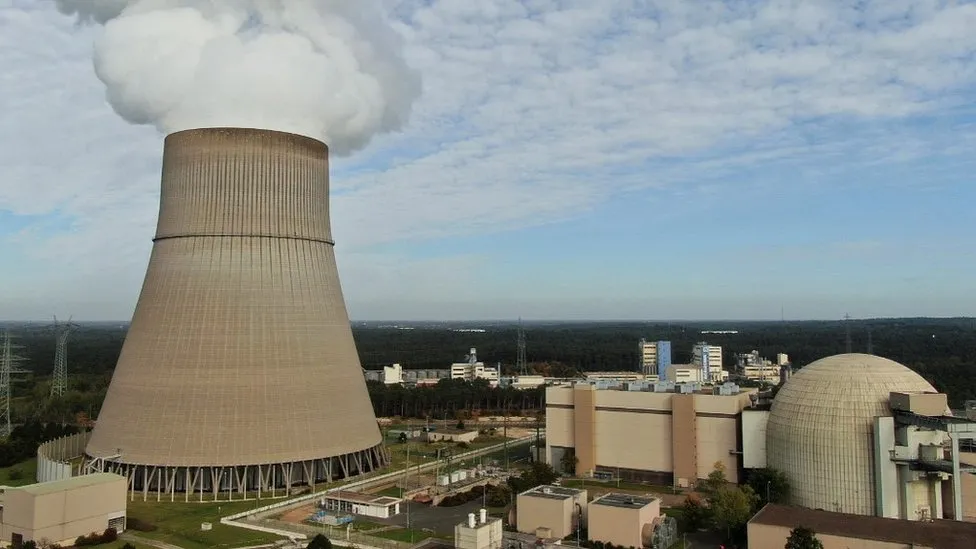 German Chancellor Olaf Scholz has ordered the country's three remaining nuclear power stations to continue operating until mid-April. Scholz’s order ends weeks of dispute within his governing coalition. The head of the liberal Free Democratic Party coalition partner, Christian Lindner, was pressing to keep all three plants running until at least 2024, while the Green Party led by Economy Minister Robert Habeck insisted on closing them as scheduled at the end of 2022. The Greens wanted only two plants to be kept on standby, to be used if needed in face of the energy crisis sparked by European sanctions on Russian energy. The liberal Free Democratic Party, on the other hand, had been pushing to keep all three reactors active until 2024.
German Chancellor Olaf Scholz has ordered the country's three remaining nuclear power stations to continue operating until mid-April. Scholz’s order ends weeks of dispute within his governing coalition. The head of the liberal Free Democratic Party coalition partner, Christian Lindner, was pressing to keep all three plants running until at least 2024, while the Green Party led by Economy Minister Robert Habeck insisted on closing them as scheduled at the end of 2022. The Greens wanted only two plants to be kept on standby, to be used if needed in face of the energy crisis sparked by European sanctions on Russian energy. The liberal Free Democratic Party, on the other hand, had been pushing to keep all three reactors active until 2024.
In 2021 Germany got 55% of its gas from Russia, but in the summer that fell to 35% and is set to decrease further. Originally Germany had planned to phase out all three by the end of this year. The operators of the three remaining plants are E.ON (Isar 2), RWE (Emsland) and EnBW (Neckarwestheim 2), which, with a total capacity of 4.2GWe currently account for 6% of Germany's power generation.
The decision to phase out nuclear power was taken by former chancellor Angela Merkel after Japan's Fukushima nuclear disaster in 2011. Before that, nuclear accounted for a quarter of Germany’s electricity production. Merkel also called for ministries to present an "ambitious" law to boost energy efficiency and to put into law a phase-out of coal by 2030. However, Germany is now restarting some of its coal plants. Earlier in October climate activist Greta Thunberg said it was a "mistake" for Germany to press on with nuclear decommissioning while resorting to coal again.
Germany's economy and environment ministries drafted a law to extend the lifespan of the country's remaining three nuclear power plants until 15 April 2023, after Chancellor Olaf Scholz ordered the ministries to lay the legal framework to keep them operational. After amending the Atomic Energy Act to extend the lifespan of the plants, the draft bill is expected to pass the upper and lower houses of parliament by the end of November.
The operators of the plants are now taking steps to ensure that the reactors can run until April, adding that this requires a change in current law. EnBW said Neckarwestheim 2 could in principle run until mid-April given remaining fuel supplies. E.ON's Isar 2 will run until March based on current fuel rods, the company said, adding a rearranged set-up could in theory have enabled a run-time until August 2023. "For the time after that, fresh fuel elements would have to be procured," E.ON said. That, however, requires some lead time - it usually takes around a year for fresh fuel rods to be delivered.
Image: RWE's Emsland nuclear power plant (courtesy of RWE)



